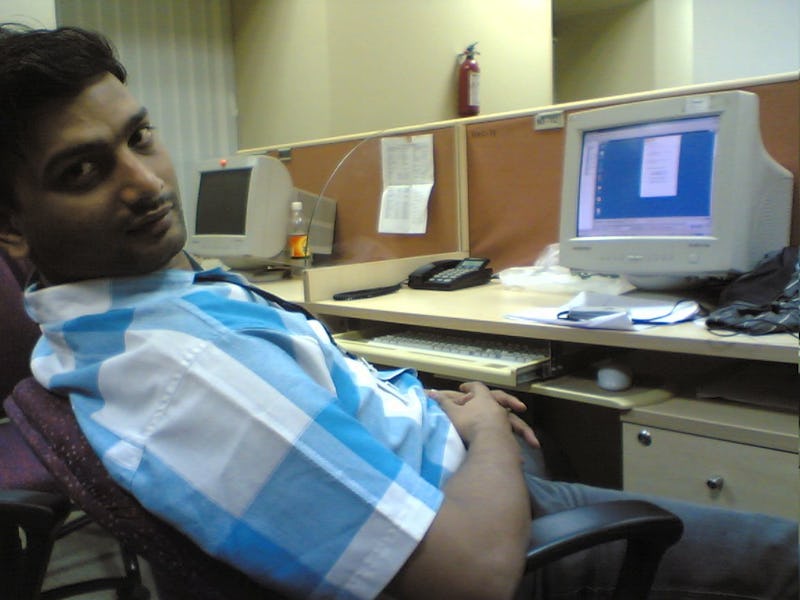Facebook's Free Basics Could Reinvent the Social Sciences and Shift Policy
If free internet results in universal access to Mechanical Turk-style systems, it could forever alter how we understand each others' cultures.

Facebook founder Mark Zuckerberg has a dream: He wants to provide free basic internet to thousands of people, predominantly in the Southern Hemisphere. He’s embarked on a campaign attempting to prove why that’s a nice guy move. Connectivity is power, he says, and it might be a human right. Right or no, Zuckerberg is expanding his client base and providing two types of access:
1) Internet access for people who didn’t have it.
2) Access to people who didn’t have internet.
Free Basics, the program formerly known as Internet.org, has been lauded by many and scorned by those who see it as a violation of net neutrality. In an open letter posted in May, representatives from across the world wrote that they feared Free Basics impeded on factors like privacy, security, and created a two-tiered internet. The Telecom Regulatory Authority of India has plans to hold a hearing on net neutrality next month, which will likely make or break Reliance Communication’s — which is partnered with Facebook — ability to provide Free Basics. And people interested in the first kind of access aren’t the only ones watching.
Interface of Facebook's Free Basics.
People who want information about other people — polling groups, social scientists, marketers, etc — have a very serious interest in what happens in India and Latin America and Southeast Asia.
The why of it has to do — like everything else — with Amazon. The Bezos Empire has an online marketplace called Amazon Mechanical Turk that essentially works like this: People request “Human Intelligence Tasks” or “HITs” and then Mechanical Turks (other humans) respond and complete them. The average wage for completing these tasks is $1.40 an hour and the tasks can be anything: plugging in data, transcriptions, translations, etc.
In 2007, Amazon expanded the service to allow Indian workers to be Mechanical Turks and get paid in rupees. As of February 2015, there were about 500,000 registered Mechanical Turks.
Mechanical Turk launched in 2005.
Soon after Amazon expanded the service to everyone, social scientists realized something very important: They could use Mechanical Turks to collect much-needed data for their research. Social science data has been flawed for sometime because it collected information only from W.E.I.R.D. people — the Western, educated, industrialized, rich, and democratic. Sweeping statements on the human race were emerging from just a handful of American university undergrads that displayed “psychologically unusual behavior” compared to 88 percent of the world’s population. This was bad for scholarship and understanding.
“Most of what’s happening in these studies involves trying to understand human behavior,” David Rand of Yale University told Newshour. “Understanding bias and prejudice, and how you make financial decisions, and how you make decisions generally that involve taking risks, that kind of thing. And there are often very clear policy implications.”
Social scientists began issuing surveys and tasks to Mechanical Turks who were, not only more diverse than their students, but also more responsive. While the process is not perfect — there is, for example, no environmental control when Mechanical Turks complete a task — social scientists can screen their new subjects in a variety of ways. They can, for example, only request Mechanical Turks who have never engaged in an academic study before, or who are under the age of 30, or live in the state of Michigan. (A key to success here is that social scientists have to remember to place these restrictions to avoid bias response.)
The ability to have Mechanical Turks be regionally specific is where Facebook’s Free Basics comes in. Mechanical Turks are already offering an unprecedented opportunity to collect diverse data — and the ability to work with Mechanical Turks around the world would be doubly significant. If Facebook’s Free Basics facilitates Mechanical Turking, it could create a massive boom in cross-cultural comparison studies, which are currently difficult to finance and pursue. These studies might be able to shed light on something more interesting than human nature, the nature of particular types of humans. Those learnings have policy implications and very practical value.
Zuckerberg appears to be genuinely committed to doing good and providing access to information is good — it’s just an undersold fact that it’s good in two directions. Sure, Zuckerberg will help people, but he might also learn, in helping them, how to help them better. And there’s the greater good.